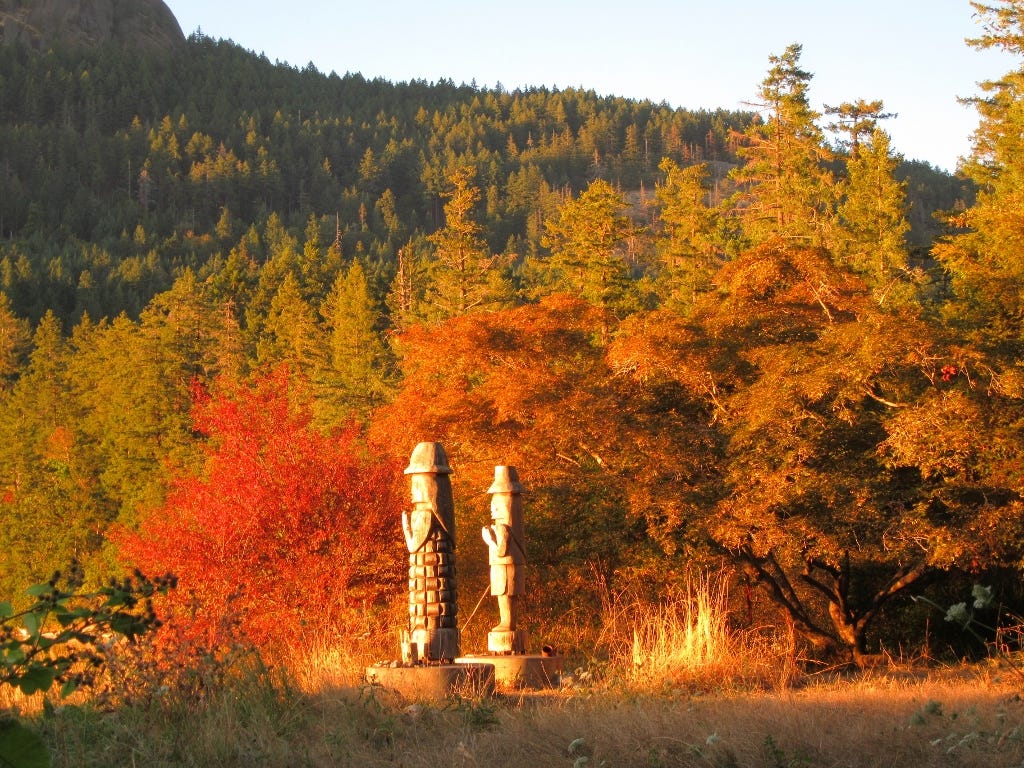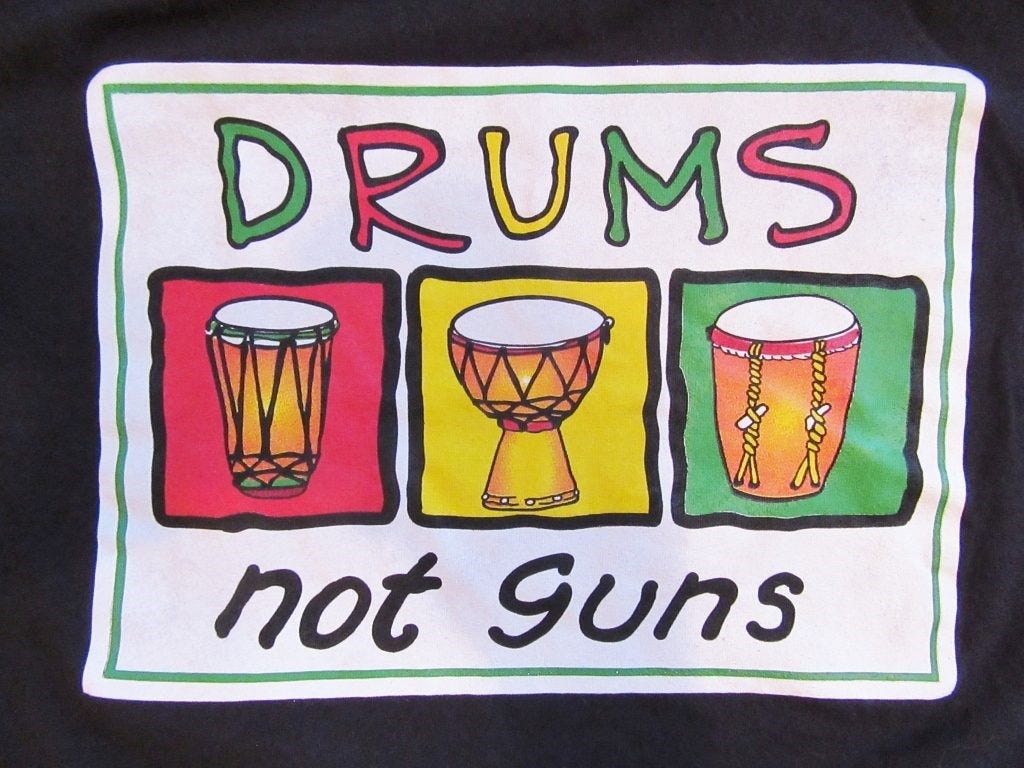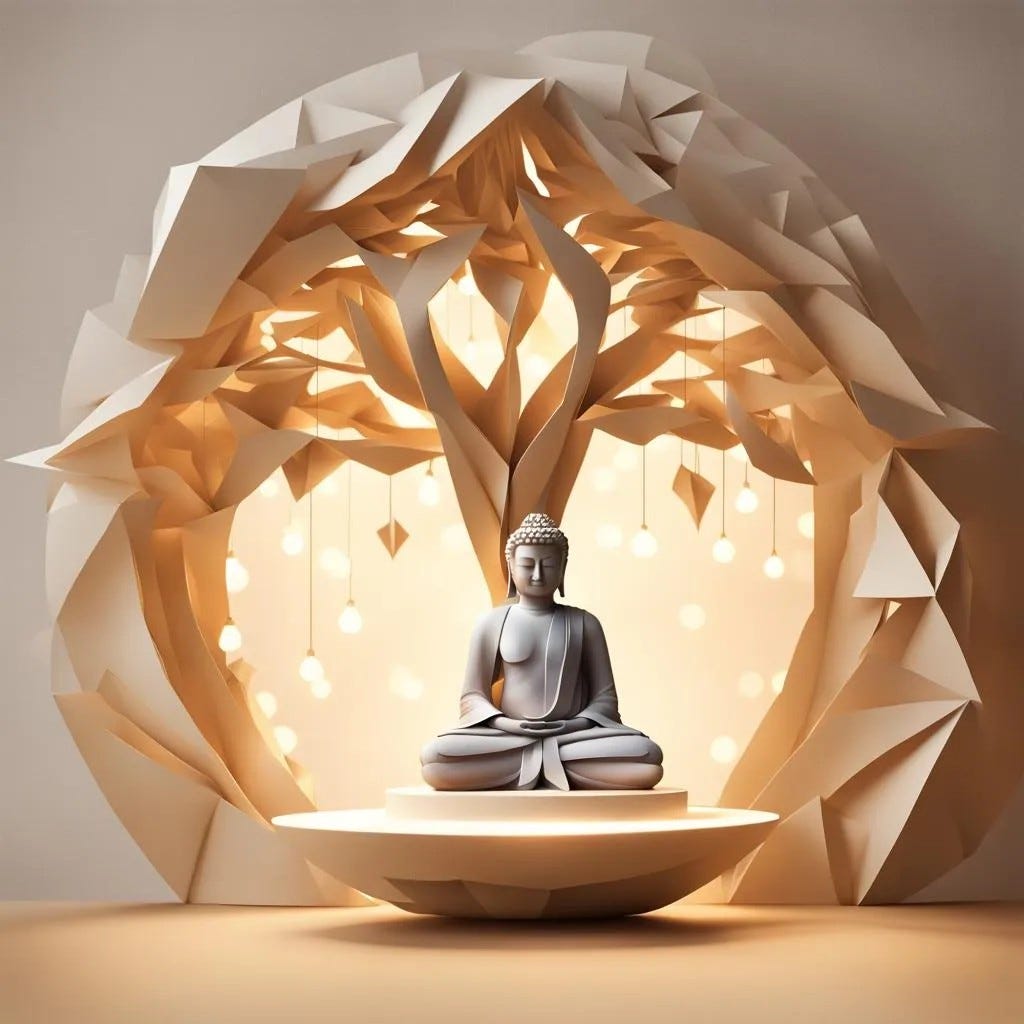The Great Debate: Anarchism versus Brutalism
(compiled from recent posts at New World Dreaming Substack, by Nowick Gray)
Introductory Remarks
I would like to introduce two writers whose work and depth of thought I greatly admire, while recognizing that they speak to what I see as opposing views of this chimera called human nature. They speak in different ways to perennial questions I would put to them as follows:
Good guys or bad guys? Where do humans in general (human nature, most humans) fall on your axis of realism?
Who is we? Can a species or society be fairly characterized as “peaceful” or “violent”? How many bad apples does it take to spoil the whole bunch?
I would characterize Paul Cudenec as an anarchist of the positivist rather than nihilist vein. I see his vision as holistic, organic, and by definition unsystematic, while also containing richness of spiritual insight and traditional values deeply rooted in nature.
On the other side, I have appreciated the thorough and fascinating research and writing of Stone Age Herbalist, who paints a different picture of human origins and behavior patterns, featuring just the kind of violence and hardship that Hollywood finds so fertile, and that politicians find so convenient when touting the “advanced” virtues of civilization. What I discern in his writing is an attitude of realism supporting the premise of innate violence and conflict, inevitable in the fight of species and tribes for territorial survival.
Reflecting on the above dichotomy in modern societies, we find evidence of the intelligent fostering of cooperative survival strategies, along with nurturing of offspring and care of experienced elders. Humans in this benign view carry nature one step further, to use our minds and spirits for another kind of advantage than brute killing and conquest.
On the other side, the cunning manipulation of primal drives by psychopathic or sociopathic elites goes beyond their natural justification, on the moral compass. But it becomes a murkier matter when leadership filters down to followership, as we are conditioned or naturally inclined to carry out the same crimes at large, in passive roles, complicit, feeding off the spoils of empire.
With these opening remarks out of the way, I’d like to launch the dialogue with this quote by Stone Age Herbalist, which I feel implicitly challenges the more optimistic brand of realism I read in Paul Cudenec.
‘The Neolithic period in Europe seems closely linked in the popular imagination with a kind of archaic, rustic idyll, a time of quiet change from the savagery of hunting and gathering to the sensible world of farms, fields and ploughs. Many have been left with the impression of a tranquil matriarchy-of-sorts, visions of the Mother Goddess, Old Europe, peaceful communal life and a semi-forested egalitarianism. Political writers of all stripes have made use of this romantic image to buttress their arguments, but it always fails to fit the facts. One reason of course is that Neolithic Europe, taken as a whole, was far from peaceful. While the elite class of warriors which we associate with the Bronze Age had not yet emerged, there is nonetheless plenty of disturbing evidence to show how violent the original agricultural age was.’
—Stone Age Herbalist (Grey Goose Chronicles, Substack), My Top Ten Books of 2022, reviewing Warfare in Neolithic Europe by Julian Maxwell Heath
With the next book reviewed in that post (The Dawn of Everything: A New History of Humanity – by David Graeber & David Wengrow), SAH explicitly calls out anarchists (cue Paul Cudenec) for the sin of omission: “They seem determined to ignore the most basic of human impulses—fear and dislike of the other, the neighbour, the stranger.”
Paul Cudenec:
I’m not actually familiar with the work of Stone Age Herbalist and neither am I an anthropologist. But, in response to the above short statement, I would say that it is clearly misleading regarding the anarchist position.
Firstly, anarchists in general (notably Peter Kropotkin, author of ‘Mutual Aid’) do not “ignore” the existence of the competitive or fearful side of human nature, they simply say that it is not the dominant trait.
In fact, as Kropotkin showed, a tendency for co-operation is an evolutionary necessity not just for human beings but for all species. While fear of the stranger must certainly have been a factor at times, a generally-shared dislike of neighbours in the same community would be shortcut to extinction!
I very much dispute the suggestion that “fear and dislike of the other” is the “most basic” of our impulses, unless “basic” is meant here merely in the sense of “low”.
There are certain people, of course, who are very much motivated by this kind of attitude, but they frankly tend to be at the bottom end of the scale regarding intelligence and sensitivity.
We live in degraded modern societies founded on fear and hatred, and I suspect that such people’s attitudes are a result of that cultural heritage.
To assert that “hate-your-neighbour” is the permanent human condition leads us towards dark political places.
Either we accept that people are simply “like that” and relish the prospect of ongoing conflict and animosity, or we declare that the firm hand of Authority is needed to keep us in line.
My own desire for the restoration of natural freedom is based on the conviction that human nature is imperfect but essentially good, which is something I have observed on a personal level.
I suppose that if you have lived in different circumstances among different types of people you might come to the opposite conclusion, but this would still not mean that hatred of the other was the predominant feature in human relationships either now or in the past or that it need form the basis of our vision for the future.
Stone Age Herbalist:
Thanks for the opportunity to have this extended discussion on what has proved to be an eternal philosophical and political question.
To begin with I should address what often seems to be a sticking point in these types of debates. Whilst my work does focus on what could be called the ‘dark’ side of human nature, that does not mean that I don’t believe in or cherish the normal, benign and peaceable aspects of life. People of course are generally agreeable to those they know, affectionate to those they love and hospitable (to varying degrees) of those they don’t know. Man is generally co-operative and sociable, living in kinship and wider groups, sharing a common language, culture, set of mores and customs, religious beliefs and all the features of human life found everywhere on earth. However, as anyone familiar with the anthropological or psychological literature knows – Man is also self-centred, selfish, timid, boastful, anxious, proud, spiteful and psychologically ill in a number of important ways. I agree with the view that Man is only a half-formed creature, full of the impulses of a semi-conscious being, many of which are deeply unpleasant and petty. Even amongst the ‘natural’ happy band of hunter-gatherers, people harbour vendettas, practise bad magic against one another, seek to dominate through subterranean methods and suffer the aches and pains of age and infirmity. Many accounts exist of shamans manipulating young women in their tribe to have sex with them, or of the male-run secret societies – so common in Papua New Guinea, North America, the Amazon and West Africa – where older men may ritually abuse younger boys or assert their power by terrifying the women and children through magical demonstrations, fearsome masks or outright violence. This is to say, the human condition arises from all these difficult social interactions between family, friends and neighbours, without even considering the stranger, or worse, the enemy.
I don’t outright scorn anarchism as a school of thought, I just don’t believe that it is an end in itself. I think anarchism is like when energy is pushed into a physical system – for a moment there is a liberation of bonds, an instant when rearrangement becomes possible, a freedom of movement and structure. But it cannot last. A system must find an equilibrium or an energy minima, and for human societies that typically means a mode commensurate with the number of people and social complexity which emerges from it. For example, hunter-gatherers are not usually organised into highly stratified societies. But when enough energy is available, then the group can alter its form and become something else, like the Floridian Calusa or the tribes of the Pacific Northwest – fuelled by endless salmon runs, which in turn gave rise to chiefs, slaves, potlatches and stunning artwork. Or when the horse became available to Native Americans, there was a profound freedom previously unavailable, which transformed the buffalo and the Plains into a resource capable of generating an empire like Comancheria.
Ultimately the great social currency is trust. Trust is crucial to any functioning society, unless one wants to live in a state capable of both the most ruthless efficiency and compulsion. Trust is not just an abstract concept, it is a physiological feature of existence. You feel it in your gut when you don’t trust somebody, and when you do. Humans are an animal, and we have fuzzy limits on our behaviours, no matter how adaptable we may be. A simple glance at the ethnographic and archaeological record shows that Man spontaneously organises himself into groups with semi-porous borders: the Mbuti, Fore, Ainu, Thule, Quechua; the Tibetans, Māori and Natufians. These are of course embedded into larger language and ethno-cultural groupings, some of which may become so isolated from one another that they diverge in physical appearance and genetic diversity. For instance, the Aboriginal Australians or the Khoisan of southern Africa – both so divergent that an anthropologist would not struggle to identify them from their buried remains thousands of years later. The full range of human emotions are on display when different peoples come into contact with one another, especially in the case of migrating agriculturalists or pastoralists encountering foragers, which is a dynamic endlessly repeated in the record. Violence, trade, inter-marriage, xenophobia, parallel communities, ritualised combat, joint feasts and so on.
So when I say that anarchists like Graeber and Wengrow ignore one side of this human drama, I do not mean to prioritise over the other. Many peoples seem relatively peaceful, and uninterested in conflict. I mean that political anarchists want to draw from prehistory and history a moral tale, rather than a factual account of reality. What Graeber wanted was to have a series of ‘ready-mades’ to hand, to make his case for anarchism in the present by drawing on just-so stories from the past, despite their highly contextual and contestable nature. I’ll end by picking up on something my interlocutor said – that fearful people tend to be less intelligent and sensitive. This is probably true, and liberalism in general tends to correlate with intelligence and a disposition towards openness. However – most people do not possess both of these traits, which is why anarchism is typically confined to a particular kind of middle-class individual (not to use that as a pejorative, just a description), a conscientious, intellectual, compassionate person who treasures their autonomy and their independence of body and mind. This is laudable, but most people are not like this, and any system of social governance has to take that into account.
I’ll close my opening remarks here, hopefully that has both clarified some positions and expanded the debate.
While this dialogue is necessarily incomplete, each speaker has presented the basic merits of their perspective. Obviously there is no “winner” here but rather, in sum, an integrated view: a matter of variable balance, context, individual inclination and local circumstance.
At least, that’s my take on it, for now! The invitation remains open for further dialogue, which I will update as it may arise. In the meantime, here are some further reflections and commentary on more readings by Stone Age Herbalist, Francis Fukuyama, and others.
The Great Debate: Further Reflections and Commentary

Aside from the dialog I invited between Paul Cudenec and Stone Age Herbalist (SAH), on the core issues of human nature, good and evil, violence and nonviolence, which I have mulled over for a lifetime, I have my own recent researches and insights to share. This is an endless project, no doubt, so rather than wait for some indeterminate point of conclusion, I’m more inclined to dive in at any point—a fractal or holographic investigation—to further explore the depths of the question.
Hollywood and politics equally thrive off the good guy / bad guy narrative. Does it matter whether there’s only one evil genius at work, or a cosmic duality playing at asymmetric warfare? Consider that one fzzzing mosquito, or arrogant wasp, can spoil the whole picnic. There’s no peace even in the garden.
Regarding evil, nevertheless, we all claim that we, our friends and neighbors aren’t the problem. It’s the other guy. Digging deeper to our shadow selves, we’re all complicit to a degree. So the real question is, how wide is our reach, how deep our charnel pile? For most of our 8 billion souls, it’s negligible—a ripple in the ecosystem, a swatted mosquito.
For Mongol raiders, Norse marauders, it appears a whole culture of predation. Akin, you might say, to the digital sharks of Wall Street or Bern, London or Rome. Again I ask, does that apex class represent a majority, even a universal, greedy human nature, or is it just a rogue gang unleashed? And does it matter?
On the scale of so-called history, we get to choose the characters that carry the story, the ones who convince most truly of their humanity, for better or worse. As for the future, it’s also a speculative realm of our own making, according to taste. Through what color lens do we see and paint the true heart of Homo sapiens, if there even is such a thing?

Barbarians at the Gates
To review some recent threads that I have found inspiring to launch further thought experiments (apart from Cudenec and SAH’s comments in dialog form), there is Jeffrey Tucker’s 2014 essay, Against Libertarian Brutalism, with the subtitle, Will libertarianism be brutalist or humanitarian? Everyone needs to decide.
Tucker paints libertarians of two opposing persuasions, relevant today as the outmoded concept “right-wing” is used increasingly to tar dissenters from the neoliberal authoritarian state. On one side are the humanists with old-school liberal values (humanitarians), and on the other (brutalists) the xenophobes, homophobes, and racists that still serve as caricatures of the aforesaid conservative dissenters (i.e., Hillary Clinton’s “basket of deplorables”). As Tucker puts it, “Within the framework of liberty, there is the freedom to love and to hate. At the same time, they constitute very different ways of looking at the world—one liberal in the classical sense and one illiberal in every sense.”
Tucker goes on to differentiate the two tribes by opposite values: either the principle of liberty and freedom for human betterment and harmony, or the contrarian principle of opposing and tearing down everything beautiful just because, with the mindset of a petulant, terrible two-year-old. (In this way his use of the word “brutalist” harkens to its traditional context as an architectural style of the twentieth century that stubbornly scorned beauty, on principle).
Reminiscent of this distinction, SAH in a recent post (On the Two Forms of Primitivism: Life Ascending & Descending) lays out two different types of people who embrace a nostalgia for the primitive state of being. There are those who follow a path of “descending” energy and those who follow the “ascending” path.
Predominant today among the nature-lovers, the descending type believes in a style of
‘”Egalitarian primitivism”… a form of levelling, a spiritual horizontalism…. The psyche wants to dismantle existence and join the great multitude, the swamp of all primal being…. To the egalitarian, energy should be diffuse, quiet, smooth, flat, amorphous… This is why these egalitarians always gravitate towards the Third World and the Indigenous, they believe themselves to be victims in a historical game of differentiation, where their ability to nestle into the folds of the longhouse have been excised. They feel deracinated, lost, unmoored – and this exact sentiment binds all those who accept the premise that the human animal has been severed, and this is a bad thing.’
The implication here is that the direction of human evolution away and apart from nature is a good thing. Which is a familiar sentiment, held by the champions of “progress” and “civilization” of every political persuasion. It appears the anti-primitivists indeed celebrate our separation.
Since I find myself questioning that separation every day, I confess allegiance to the tribe of idealistic egalitarians:
‘The egalitarian does recognise this deep break with nature, and wrestles endlessly as to where the blame should be laid. The birth of capitalism, the industrial revolution, the peasant enclosures, Christianity, the domestication of various animals and plants, agriculture itself, maybe the use of fire as a tool?’
We have this deep suspicion that the path of Homo sapiens was a wrong turn, a bad moral choice. SAH’s implied critique raises the opposite question, as if to say, what good is morality without survival?
Bottom line. Winner takes all.
For even while we counter, “What good is survival without morality?”, survival has proved its preeminence.
On the balance, the inquiring mind is left to wonder: there must be a line of justice in the sand, between nature’s intent and man’s murderous will. And what if those two purposes are identical? Is what’s at stake more about attitude than action?
The classic Indigenous steward and the peaceful communitarian both followed Darwin’s left-hand path of cooperation, even as they proved their competitive vigor to secure survival.
The logical flaw in the nonviolent strategy is the need for a protective strategy, a barrier to keep at bay those hungry, lustful barbarians, who threaten from outside with their own more violent, unapologetic and “unnatural” survival strategies. The egalitarian utopia in the end “depends on external protection, and cultivating a deliberate ignorance about the wider world.”
To add insult to injury (in SAH’s view) the bubble of communitarian bliss is vulnerable not only to invasion from outside, but to the endemic darkness in human nature—insidious forces of unconscious domination and separation, corrupting the freedom of nature’s state from within.
‘People are a confused, horrid jumble of drives, impulses, nasty little loops of vengeance and meanness. Most people have always lived ‘closer to the earth’, in the sense that the egalitarians wish for, but they see only the benefits of this and forget the utter suffocation of life in the village.’
Thus, more soul searching ensues.
‘Hand-wringing, concerned with levelling the consciousness of Man back to that of an animal, anxious that the ‘break’ with Nature has violated a kind of treaty, that we shall suffer the consequences of being fully apart from the world. [Kirkpatrick] Sale goes further than most in arguing that humans should attempt to re-adopt the mindset and behaviours of Homo erectus, truly a return to nature if there ever was one.’
SAH has effectively boiled down the marrow of the matter here. The choice really comes down to the championship round: Homo erectus v. Homo sapiens. Which Supreme Court would favor the former, and condemn the latter for winning? Are we not in the arena of the Hunger Games, by the rules of this stadium, in this naked apelike costume to perform before emperors and judges, dutiful citizens and mind-controlled mobs?
My egalitarian soul wants to complain: But, but, but…
Man does not live by bread alone.
It’s not about winning, it’s how you play the game.
Instead I’m knocked back on my ass, having to reread…
Survival of the fittest to survive: a time-loop dystopia
My primitivist sentiments of the “descending” type are cast as defeatist, denialist, dangerous. They are the talk of weakling dissidents, taxing the patience of the powerful.
Winning, in short, is everything.
We now bring you, the apex human, Homo sapiens rex.

SAH’s favored portrait shows composite genetics of Nietzsche, Aryans, Dionysus, Saint George.
When the going gets tough, the tough get going.
At last we come to the hero of this play (though barely visible as yet), the ascending spirit warrior, keen to enter the fray on the side of “’hierarchical primitivism’… a metaphysics of ‘strife’… a struggle which glorifies Life.” This proactive soul
‘seeks not to annihilate Man’s capacity for action, but to refine it and wield it in his service… to breathe the fresh air of something clean and pure, through speed, pace, vitality, life… [like] the barbarians on the steppe. Now there are few physical realms like this, but through art, music, literature, the development of friendships, instincts, the training of the body, the celebration of life – it is possible to tap into that strain of primitivism… where the possibility of Life depends on Death.’
This death-defying and death-dealing, in martial colors, seems to be the paradoxical remedy for a contemporary culture so bent on death-denying while consuming it en masse as entertainment. Mediated death, medicated by that potent cocktail, denial and distraction.

The danger lies with those who forget the life-celebration part and hold the Death impulse fixedly, feeding on its malign power. This then is Nature’s imbalance, still to be resolved. The unquenchable zest for destruction, blood lust, alpha perch. The contrast to all Nature’s beauty, our tragic contrast when it’s us who are prey.
So we give Death back its rightful role as a dynamic partner with Life. Not a skeleton in the closet, a Twilight Zone, or a warzone, but an honored necessity—neither invited, nor forced by another of our kind.
It comes down to that distinction, of who is human and who is other, which is to say, prey. Thus the pronouncement by war leaders always to call the enemy cockroaches, vermin, insects, beasts, even sport.
Who’s the enemy, then—anyone and everyone? Is it the Hunger Games for real now?
It always has been. But if that’s your mindset, then what? Anything goes? You just have to be clever and make alliances, watch your back, pick off the losers, and then, get down to business against the others. Until there are no others.
In the final analysis, it boils down to a race war, a tribal identity. Whether Athens and Sparta, Rome and Carthage, Vikings and Celts, Serbs and Croats, Hutus and Tutsis, Sunni and Shia, Yankees and Rebels, Hatfields and McCoys.
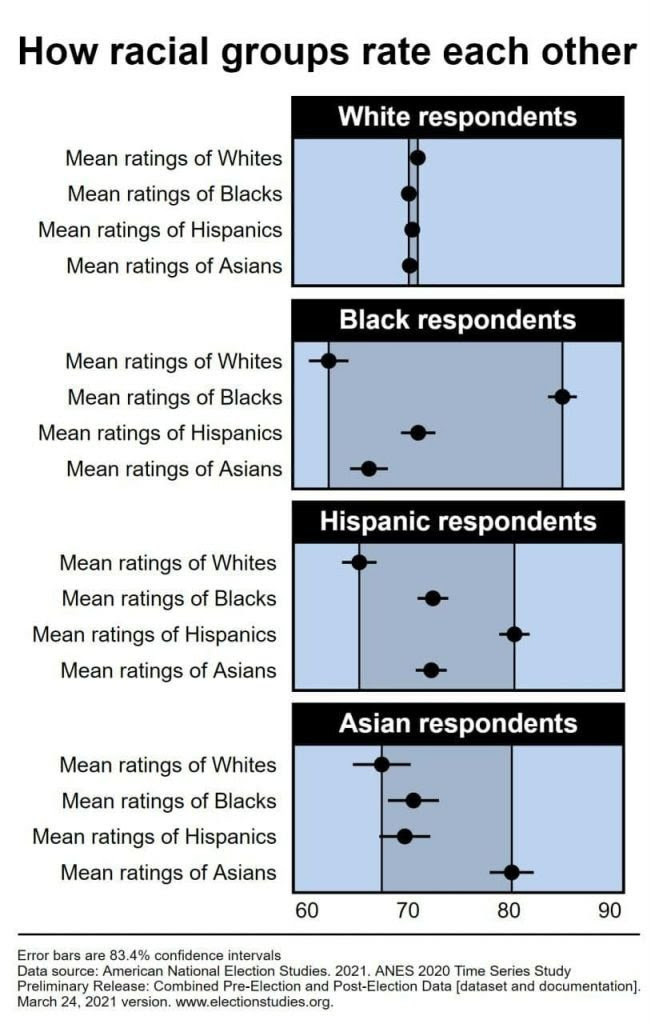
A man’s home is his castle.
The only good –––– is a dead –––– .
Nazis All the Way Down
My Dad, the War Hero
Air Force 2nd Lieutenant William Gray, Purple Heart, wounded in action (bombing German cities), bailed out over France, survived to spawn me. What do I do with that role model?
He was gone again to Korea, rewarded with a job in the officer’s club, in my infant years. After that, he was my war hero… until Kennedy, and Vietnam, and finally grasping the reality of “bombing German cities” (i.e., war crimes) in a college history course. When my father gave up running the rat race, he still had the horses and the bottle, leaving me to my own devices, and the vices of My Generation.
Sixty years after JFK was murdered—a permanent and fatal coup to a once-proud and self-righteous nation—the US is resigned to the role of patron of pariahs. Champion of apartheid Israel, the US is no stranger to its obligatory Two-State (read: Final) Solution in the Middle East, having done such an effective and affirmative job of it with its own Native genocide and barren reservations (so much for the second of the two states). The uncensored template is: The only good ____ is a dead ____.
The strangest thing about all this is, how every “victor” sounds the same war cry.
- The American Air Force: The only good German is a dead German.
- The German Command: The only good Jew is a dead Jew.
- The State of Israel: The only good Palestinian is a dead Palestinian.
To me it looks like a case of Nazis all the way down.
That brand of survival is a poor reward for the gift of life. It’s no ascent at all, but a descent below the swamp, into the coldhearted maw of the crocodile.
How to make truce with a crocodile?
There are options, I submit. Use trickery, or leave it to its swamp. Set traps to establish your safe exit.
And the next time there’s conflict with your brother, realize this:
Football is better than fighting.
Maybe there’s moral merit in the ascendant impulse after all. SAH elaborates:
“’If everything is irredeemable’ he thinks, ‘then it all needs to go’. In this he shares with the egalitarian the impulse to destroy, but comes instead to see the fight, the conflict, the challenge, as the greatest point of spiritual ascension. Not just in the ability to overcome through a test of wills, but in the instant of any struggle when the chattering, broken mind of habitual Life is silenced, and the body can take over….
‘“Strife is justice” as Heraclitus said, insisting on the primacy of tension between opposites to generate Life. Entropy isn’t just Death, it’s the absence of motion and the possibility of conflict. Death itself can be a vital force which elevates and exalts Life.’
Fair enough, but who’s to die and who’s to live, and who gets to decide?
There’s more than one way to skin a cat.
Death is inevitable and demands our respect—to elevate and exalt Life, not to worship Life’s wanton and perverse subjugation. The Buddhist instruction Meditate on death should be sufficient to give it its due, and therefore to cherish all the more the precious jewel of this existence.
The End of History and the Last Man?
The dichotomy between Stone Age Herbalist’s egalitarians and more hierarchic primitivists is one that Francis Fukuyama tried to resolve in his 1992 book The End of History and the Last Man. In this view the individual urge for recognition (Greek thymos, integral as the “spiritedness” of human nature) is satisfied to throw off the yoke of oppression (and its own heroic exploits for glory, honor, and prestige), and settle for the modern rights and freedoms (i.e., equality plus liberty) of the end state, the liberal democracy; along with that tepid and abstract connection with nature that SAH derides as a romantic and academic facsimile of the true primitivist condition.
Conquest has been replaced by self-esteem. It seems SAH would argue that the predominant “primitivist” vision is flawed for its soft and shallow “horizontal spirituality,” lacking the vitalism of the warrior. In this respect SAH is reminiscent of Robert Bly’s Iron John approach, kicking manboys off momma’s couch and out into the woods to find male mentors and inspiration both archetypal and supernatural (“the Wild Man.”)
Going further, I read Fukuyama’s portrait of the “Last Man” as the precise (and predictive) program for the Woke Social Justice Warrior, of whatever gender:
‘People believe that they have a certain worth, and when other people treat them as though they are worth less than that, they experience the emotion of anger. Conversely, when people fail to live up to their own sense of worth, they feel shame, and when they are evaluated correctly in proportion to their worth, they feel pride.’ (p. xvii)
Like Marx’s post-socialist utopia, the Liberal Democracy was supposed to achieve “universal and reciprocal recognition, where every citizen recognizes the dignity and humanity of every other citizen, and where that dignity is recognized in turn by the state through the granting of rights” (Fukuyama, p. xviii). Unfortunately two decades have disproven that grandiose theory, thanks to a political climate of woke brutalism and medical fascism. On the national and international scale, likewise the Neocons in charge of US foreign policy, upon the fall of the Soviet empire, decided on the path of Hegemony, at precisely the time when “The End of History” touted the opposite goal: “Liberal democracy replaces the irrational desire to be recognized as greater than others with a rational desire to be recognized as equal” (p. xx).
Fukuyama anticipates the critique of SAH, going back to Nietzsche’s view of the egalitarian society, that it consists of “men without chests.” Following that logic, the preeminent liberal historian warns that the unsatisfied urge to display not equality but superiority, could express itself once more in “bestial ‘first men’ engaged in bloody prestige battles, this time with modern weapons.”
Far be it for me to accuse SAH (or Nietzsche) of advocating for Aryan supermen or AngloAmerican Alphas as the Chosen Ones, much less of a romantic fling at the Alone game for more than a season on the North Wet Coast. I take heart in SAH’s broad brushstrokes of the Ascendant spirit, that primal thymotic urge that doesn’t demand satisfaction in blood sacrifice or black ops, but takes action in a vitalized, neobarbarian culture of “art, music, literature, the development of friendships, instincts, the training of the body, the celebration of life.”
Living the primitivist dream…
At least, until we smell the fires from the real barbarian encampments at the gate.
Human or Humane?
‘Today the West faces evil so strong that good will is excluded. Where is there good will in the West’s support of Israeli genocide of the Palestinians? Is Marx correct that only violence rules history? If so, what are the liberal concepts of good will, mercy, justice worth? Are they merely delusions to ease our way into a non-aware mental slavery? How can these concepts affect human behavior when evil is accepted as the new normal?
‘Only an aware peoples of the Western world can bring themselves to awareness and step forward in defense of the values that define their humane existence. If they fail, then so has the West. So, my answer is that hope resides in the collapse. It is up to the people to rebuild a humane and free society.’ —Paul Craig Roberts
The key word here is humane. At last it provides a distinguishing feature of human that is not ruled by violence and genocide, even of our own kind. The question “What is human?” then becomes moot, next to the more life-affirming inquiry, “What is humane?”
Is it merely a case of Third Chakra Blues? Where the ego left to its own devices devotes all its attention to self-glorification and worldly power? And where the more viable alternative is the humane impulse, of service to others, and to other legitimate needs of the individual (represented by the other six chakras of a balanced life)?
Crow Qu’Appelle weighs in:
‘So long as humans are human, there will never be a Utopia. That doesn’t mean we can’t create something better than the rinky-dink janky-ass Reality that we’ve got now…. If we want to create a better world, we must dream it into being, and if we dare to dream boldly, it will take more than one generation for to get to where we want to go.’
Self-identity, consciousness as “exceptional,” puts us in a problematic relation to Nature and all her other creations. Yes, we have evolved with truly exceptional survival skills. But at what cost? Ultimate extinction of ourselves, along with the countless species we have taken out along the way?
The same question can be applied to any and all of our supposed advances. Writing, for example. It’s tempting but again full of that tragic flaw, hubris, to think of that unique behavior as somehow superior to the dance of bees, the formation of gems.

When we say and think human, it tends to be about what we have that the others don’t. It’s a prima facie case of “us” and “them.”
Naturally (or not) the extent of this differentiation lands on the unique individual, different from all the rest: me me me. Aloneness, in other words, is the most unnatural state.
But aloneness is only a state of mind.
No man is an island.

We all exist in context, even a lone tree on a prairie. Real natural connectedness is the antithesis of the destructive excess of narcissism, sociopathy, and psychopathy; the assumed supremacy of the ego, the manufactured terrorist, the smug conqueror.
That’s the dark heart clanging inside the faux-benevolent visions of the global elite.
They’re far from transhuman, their Frankenstein pet projects. They go way back, rather, to the ultrahuman, atop every food chain.
But is all that just reading the narrative score of this Earth opera?
What if we took off those specs and tried on another pair of lenses—to say, human is the ability to imagine being all the other creatures.
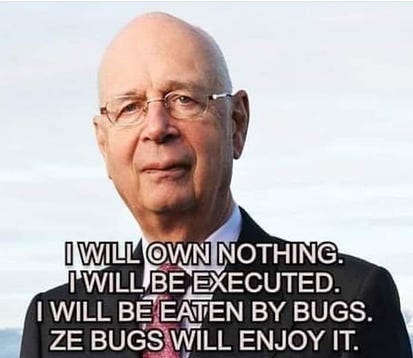
Instead of killing them all, inhabit them all. Then use what you need, gratefully and with respect.
Or, human is the ability to create, by containing all of nature in our own intention, and consciously tasting beauty.
Instead of destroying life in the service of self, let self honor the service of life.
Brainwashed Sheep, or Comfortable Wolves?
With any of the above dichotomies, and strong arguments marshalled on both sides, pat conclusions that are exclusive are less than helpful. Even my own lifelong biases are better critiqued and examined, rather than held onto as fundamentalist gospel. Our kneejerk responses to conflict (Covidia, anyone?) are always fraught with subconscious limitations.
Tom Luongo tackles the persistent issue of how to make allies, not enemies, among the humanity we want to save together.
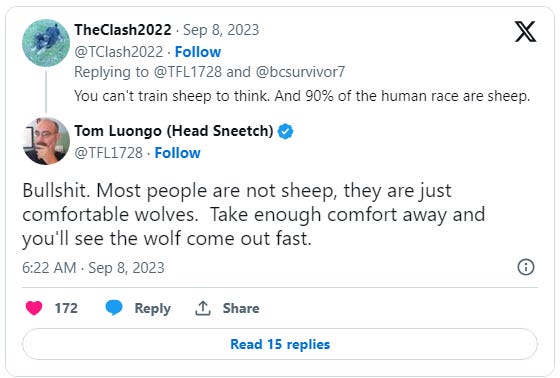
‘You’re not a bad person, stupid or apathetic, you’re comfortable. You know it. I know it. I know what I am…. Who will you really become when you have nothing left to lose. Or better yet, where’s your loss threshold before the real you bares your canines?…
‘That is the greatest of their psy-ops, convincing us we are something we aren’t…. Calling [people] sheep is to say they are irredeemable.’
‘We’ve all been abused by these psychotic Alphas. Having empathy, not derision, for that abuse is the first step towards making things better. ’
Seven Arrows
Returning to the example of the real primitives, the indigenous peoples we “others” so readily idolize or demonize, their example is instructive. Not a monolithic but a highly localized and variable cultural matrix, the indigenous tribes responded to the wave of invasion they faced in North America (AKA Turtle Island) with both impulses addressed here. There was debate and soul-searching among them even as there is today among us facing the global invasion of our humane space of desired existence in peace, harmony and freedom.
The book of indigenous history and wisdom called Seven Arrows, for example, reveals
‘the conflicts within and among the tribes as they try to understand and deal with this new, powerful, and technologically superior force, which has so upset their previous way of life. Some argue for sticking to their peaceful ways, the Way of the Medicine Wheel and the Sun Dance, while others argue that force must be met by force.’ —https://rossblampert.com/2020/04/29/seven-arrows-review/

Denizens of Turtle Island, German citizens, Patriots and Libertarians, Primitivists and Forest Rebels, this is the choice we all face, down through the ages.
How to hold out, resist, escape, counter or survive forces of domination, violence and oppression, whether from elsewhere or in our midst.
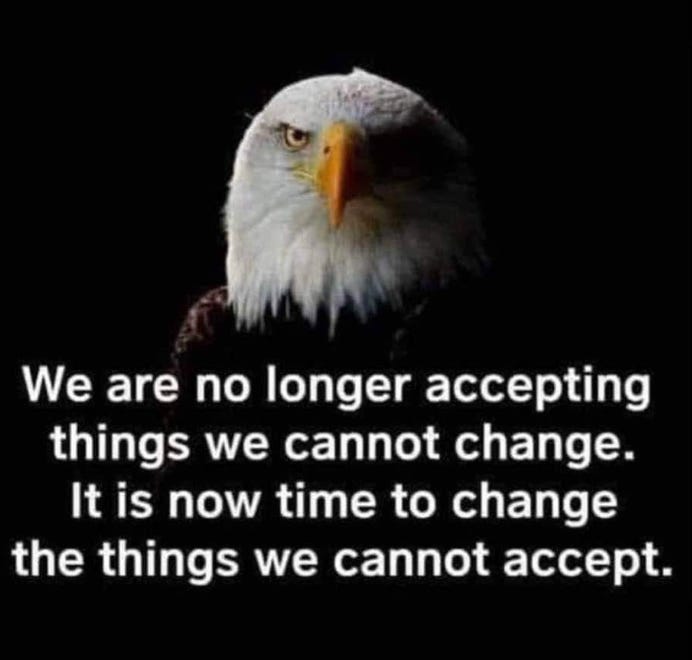
In the end it is more than a physical and cultural battle; it is a spiritual struggle and quest, even an identity.
Who We Are and What We Are For
a paraphrase of writings of Ernst Jünger, The Forest Passage, translated by Thomas Friese, Telos Press, 2013 (original German edition, 1951), by W. D. James, The Forest Rebels: Deep Resistance, Part 6.
‘At root, the struggle the forest rebel undertakes is a spiritual battle. To enter into the ‘forest passage’ is to engage with what Jünger calls “supra-temporal being”. Metaphorically, the forest is the realm of freedom and anarchy (think of Robin Hood and Sherwood Forest). Jünger accepts that within the realm of time and space, a totalitarian regime can wield control through indoctrination, punishment, and fear. The rebel must ultimately access the deep roots of being, beyond time and space, the source of all religion and spiritual being, to regain authentic freedom…. To escape the regime’s matrix of control involves playing a “higher game;” that is, to enter into a spiritual struggle against the always essentially materialistic values of the regime….
‘Our resistance is, at root, a spiritual resistance. It is a battle of values and different conceptions of existence.
‘As the regime perfects the technological means of control it can produce increasing conformity.
‘The sources of authentic counter-values are deeply rooted in being, in nature.
‘One must have an authentic encounter with these primordial realities.
‘This is the metaphysical root of true freedom.
‘The truly free and spiritually enlightened person is prepared to act without fear of the regime’s power in defense of the genuine values they have discovered.
‘Further, movements of resistance are ultimately spiritual movements….
‘Our real struggle is always a matter of fundamental values and orientation; in short, a spiritual struggle.’
Further Reading
Far more extensive and in depth considerations on the above topics appear in the Substack Nevermore, by Crow Qu’Appelle, especially since the beginning of 2024. Some of the relevant posts are available via the following links:
What Is The Shamanic Trace? (My Mind Is Blown!)
An Anarchist Theory of Evolution
Stephen Pinker Is A Lying Charlatan Shyster
Jared Diamond Is A Professional Deceiver
See also my previous post on the related topic:
